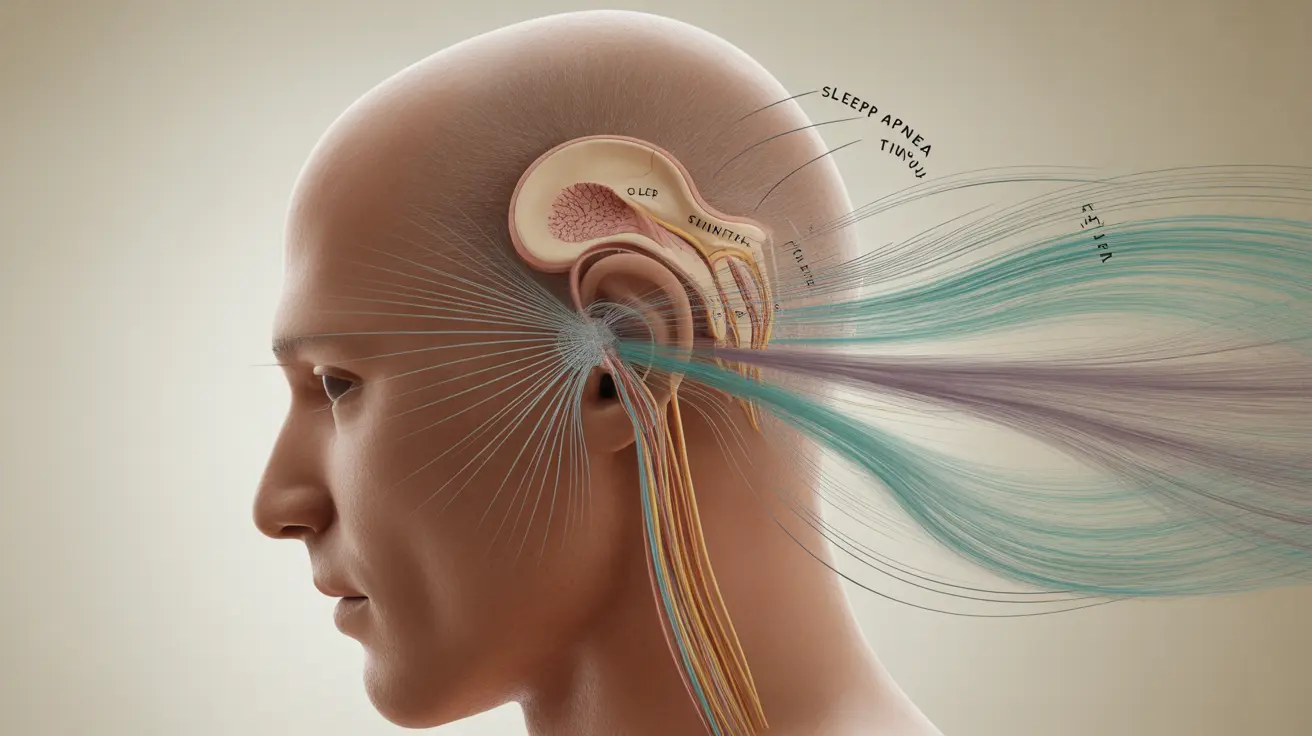Tinnitus and sleep apnea are two distinct but potentially interconnected health conditions that can significantly impact quality of life. Understanding their relationship is crucial for proper diagnosis and treatment. While many people wonder if tinnitus causes sleep apnea, the connection between these conditions is more complex than a simple cause-and-effect relationship.
This comprehensive guide explores the intricate relationship between tinnitus and sleep apnea, examining how they influence each other and what treatment options are available for those experiencing both conditions.
Understanding the Link Between Tinnitus and Sleep Apnea
Research suggests that sleep apnea may contribute to the development or worsening of tinnitus symptoms, rather than the other way around. Sleep apnea's intermittent oxygen deprivation can affect the auditory system and potentially trigger or intensify the perception of ringing, buzzing, or other phantom sounds characteristic of tinnitus.
The Impact of Sleep Apnea on Tinnitus Development
When someone experiences sleep apnea, their breathing repeatedly stops and starts during sleep. This disruption can lead to:
- Reduced oxygen flow to the inner ear
- Increased inflammation throughout the body
- Elevated blood pressure
- Disrupted circulation to auditory pathways
These physiological changes may contribute to the development or intensification of tinnitus symptoms.
Treatment Approaches for Combined Conditions
Managing both conditions often requires a multi-faceted approach. The good news is that treating sleep apnea can potentially help reduce tinnitus symptoms in many cases.
Primary Treatment Options
Common treatment strategies include:
- CPAP (Continuous Positive Airway Pressure) therapy
- Oral appliances for sleep apnea
- Sound therapy for tinnitus management
- Cognitive behavioral therapy
- Regular sleep schedule maintenance
Lifestyle Modifications for Symptom Management
Several lifestyle changes can help manage both conditions effectively:
- Maintaining a healthy weight
- Regular exercise
- Avoiding alcohol and caffeine before bedtime
- Practicing good sleep hygiene
- Stress management techniques
- Smoking cessation
The Role of Professional Medical Care
Professional medical evaluation is essential for proper diagnosis and treatment. Healthcare providers may include:
- Sleep specialists
- ENT (Ear, Nose, and Throat) doctors
- Audiologists
- Primary care physicians
Frequently Asked Questions
Does tinnitus cause sleep apnea or is sleep apnea more likely to cause tinnitus? Sleep apnea is more likely to contribute to tinnitus development rather than the reverse. The oxygen deprivation and cardiovascular effects of sleep apnea can impact the auditory system, potentially leading to or worsening tinnitus symptoms.
How does sleep apnea contribute to the development or worsening of tinnitus? Sleep apnea can affect tinnitus through multiple mechanisms, including reduced oxygen supply to the inner ear, increased inflammation, and disrupted blood flow to auditory structures. The stress and fatigue from poor sleep quality can also intensify tinnitus perception.
Can treating sleep apnea help improve or reduce tinnitus symptoms? Yes, many patients report improvement in their tinnitus symptoms after successful treatment of their sleep apnea. CPAP therapy, in particular, has shown promising results in reducing tinnitus severity for some individuals.
What are effective treatment options for managing both sleep apnea and tinnitus together? Effective management typically involves a combination of CPAP therapy, sound therapy, cognitive behavioral therapy, and appropriate lifestyle modifications. Treatment plans should be individualized and monitored by healthcare professionals.
Are lifestyle changes like quitting smoking or increasing physical activity helpful for reducing tinnitus linked to sleep apnea? Yes, lifestyle modifications can significantly impact both conditions. Quitting smoking, increasing physical activity, maintaining a healthy weight, and practicing good sleep hygiene can help reduce the severity of both sleep apnea and tinnitus symptoms.




